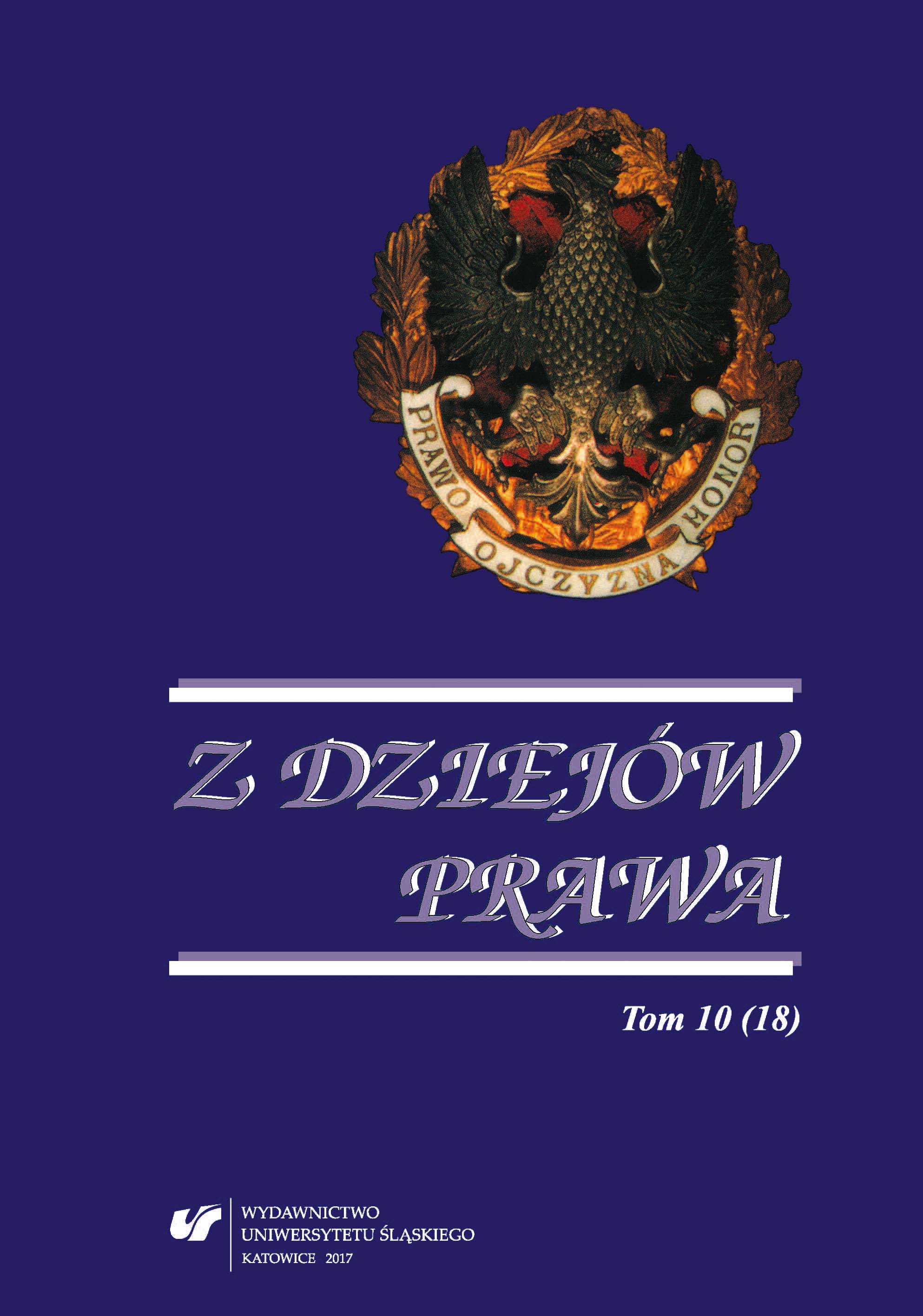Prawo spadkowe w nieznanym projekcie kodeksu cywilnego
Law of succession in the unknown draft of the Civil Code
Author(s): Anna MoszyńskaSubject(s): History, Law, Constitution, Jurisprudence
Published by: Wydawnictwo Uniwersytetu Śląskiego
Keywords: law of succession; the Codification Committee; the Ministry of Justice; the Polish People’s Republic; the Legal Comittee
Summary/Abstract: In literature on the codification of the civil law in Poland after the WWII, the years1950—1954 are a research gap. The preparation of the draft of the Civil Code in 1951 remains almost an unknown fact. The aim of this article is to present the work on the last book of this draft and solutions adopted herein. It is worth paying a closer attention to them, as they formed a clear example of progressive stalinization and compulsory transplantation of the Soviet patterns. The circle of statutory heirs was significantly narrowed, the freedom of testation was heavily restricted. Testate succession became almost completely meaningless. Under the former name of “legitime”, a reserve system (a forced share) was introduced. Testator could dispose of only a half of his assets, the rest had to be preserved for the benefit of the forced heirs. The responsibility for debts had been limited in a way which caused a high risk for creditors. The hastily prepared draft contained many gaps and errors. However, the political climate was not conducive to taking into account the remarks made to the draft.
Journal: Z Dziejów Prawa
- Issue Year: 18/2017
- Issue No: 10
- Page Range: 163-180
- Page Count: 18
- Language: Polish

